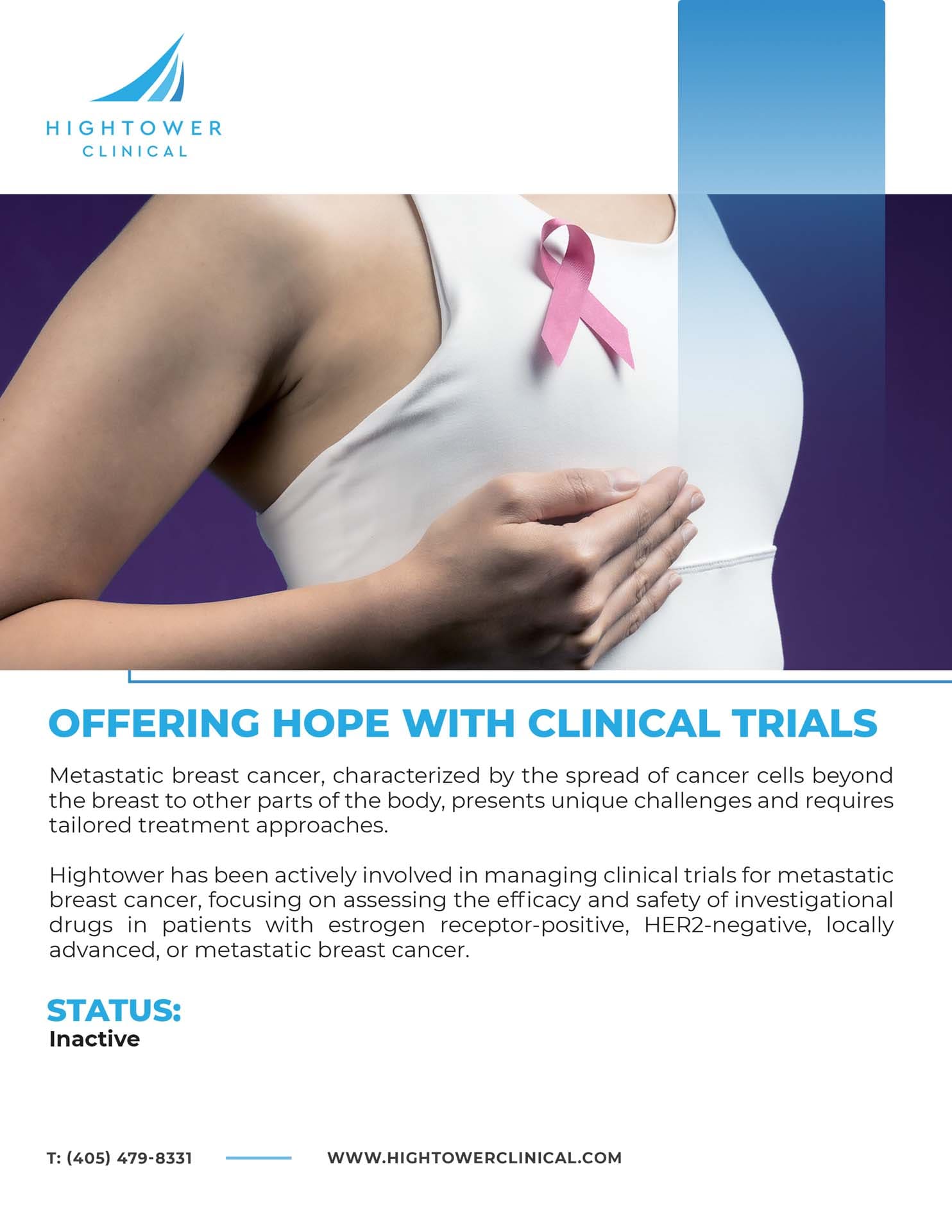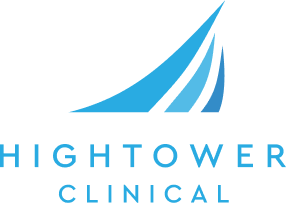Participation in a metastatic breast cancer clinical trial involves various aspects, including eligibility assessment based on specific criteria outlined in the trial protocol, detailed information provided about the trial’s purpose, procedures, potential risks, and benefits, allowing participants to make an informed decision about participation, administration of the investigational treatment or therapy as outlined in the trial protocol, regular follow-up visits and assessments to monitor treatment response, disease progression, and potential side effects and access to a multidisciplinary team of healthcare professionals who provide medical care, support, and guidance throughout the trial.
Metastatic Breast Cancer
Hightower’s groundbreaking studies have revolutionized treatments for metastatic breast cancer.
About Metastatic Breast Cancer Research Study
Metastatic breast cancer, when cancer cells spread beyond the breast, is a challenging diagnosis for millions of women worldwide. While treatment options exist, the fight for a cure continues. At Hightower, we’re dedicated to fueling hope through research.
We have actively managed clinical trials for metastatic breast cancer to evaluate the efficacy and Safety of the investigational drug in patients with estrogen receptor-positive, HER2-negative, locally advanced, or metastatic breast cancer.
Current Status
Not Recruiting
Study Count
1
Metastatic Breast Cancer
| Study Name | Protocol Number | Sponsor |
|---|---|---|
| Metastatic Breast Cancer | C4891001 | Pfizer |
WO43571 | Hoffman-La Roche |
Frequently Asked Questions
Are there risks associated with participating in a metastatic breast cancer clinical trial?
While metastatic breast cancer clinical trials are designed to prioritize patient safety, some potential side effects may occur in some patients. However, regular visits and rigorous monitoring by expert physicians help overcome these side effects,
How can I find a metastatic breast cancer clinical trial that is right for me?
Patients interested in participating in a metastatic breast cancer clinical trial can visit our website and explore our active studies to find a clinical trial that may benefit their condition.




